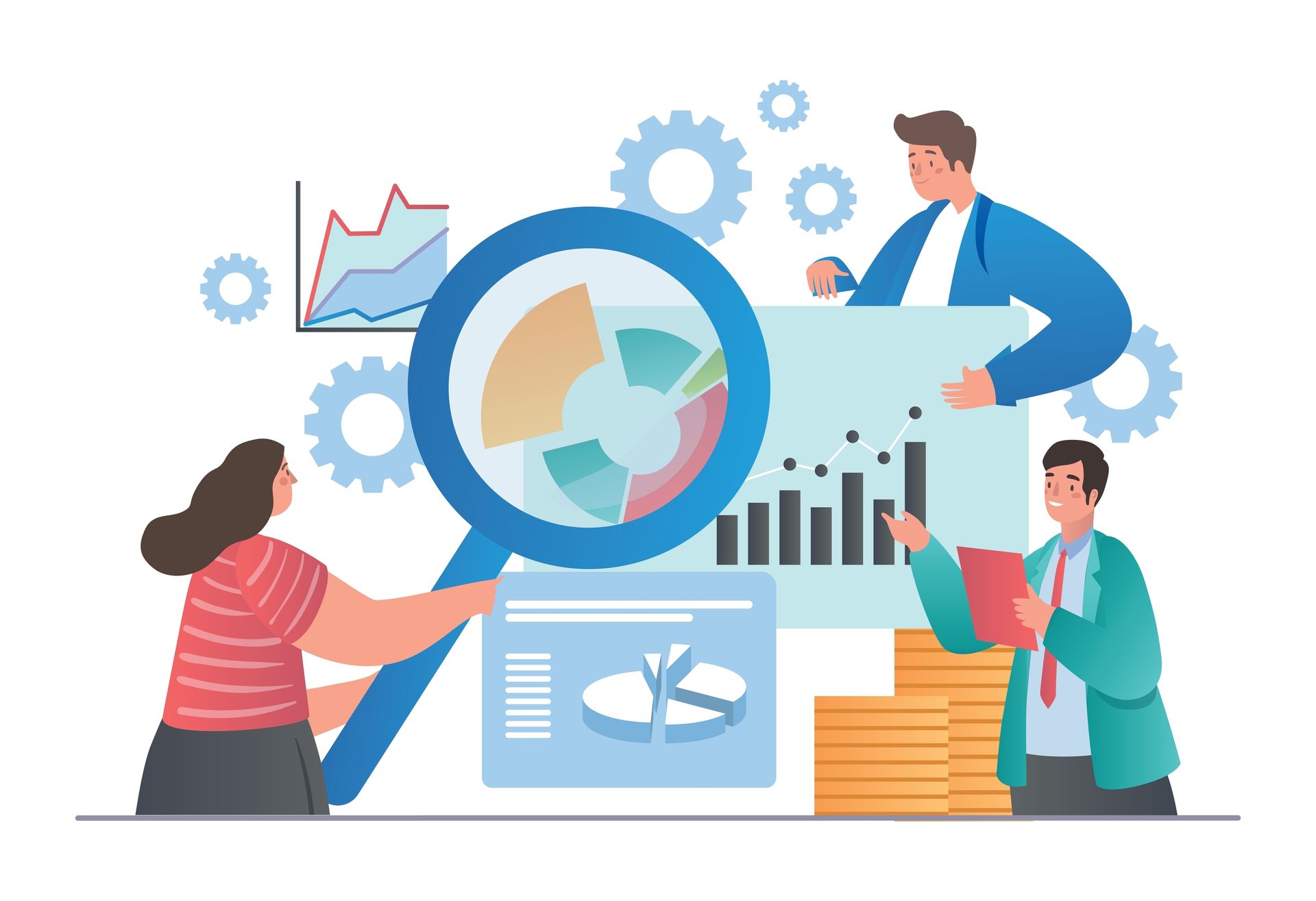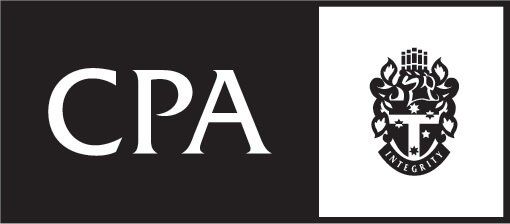Crawford News

December 2025 Superannuation Guarantee is due on 28 January 2026 Employee super contributions for the quarter ending 31 December 2025 must be received by the relevant super funds by 28 January 2026. If the correct amount of SG is not paid by an employer on time, the employer must lodge a superannuation guarantee statement and pay the superannuation guarantee charge which includes admin fees and interest. ATO Small Business Superannuation Clearing House is closing ATO Small Business Superannuation Clearing House will close on 1 July 2026. Employers must make arrangements to move to an alternative clearing house now to avoid any unexpected delays with superannuation payments. Following are few key dates in relation to the clearing house. 10 December 2025 — Super payments, along with instructions, must be received by 5.30 pm AEDT on this date. Payments received after this time will be processed from 2 January 2026. 28 January 2026 — December SG due February to March 2026 — Employers should move to an alternative clearing house 28 April 2026 — March SG due 30 June 2026 — Final day of the service. Make final payments. Employers may already have other options readily available so they can exit from using the SBSCH ahead of time and your existing software and payroll packages may already include super functions they can use to pay SG. Popular software packagaes such as Xero contain their own clearing house. ATO's approach to holiday home expenses ATO now takes the view that, if a taxpayer's rental property is also being used as a private holiday home, certain deductions relating to holding it will not be deductible in total as opposed to being apportioned. Expenses relating to ownership and use of the holiday home such as interest, rates and maintenance will not be deductible, unless the holiday home is 'mainly' used to produce assessable income. Whether a holiday home is used 'mainly' to produce assessable income will be determined based on a consideration of a number of factors. However, this will generally not apply to expenses incurred in relation to holiday homes that are rental properties before 1 July 2026, if those expenses are incurred under an arrangement entered into prior to 12 November 2025. ATO warns about barter credit tax scheme The ATO is warning the community to steer clear of an emerging tax scheme involving barter credits — a type of alternative currency used in some business networks. A tax scheme that involves artificially inflating deductions for donations of barter credits to deductible gift recipients is on the rise. While it may seem enticing, promoters and taxpayers could face potentially significant consequences if they are involved. The ATO is concerned that such schemes are being enabled by several barter exchanges that are allowing participants to access barter credits with a nominal face value that is much more than any payments actually made to the exchange. Participants then donate these barter credits to a DGR and claim a larger tax deduction than they are entitled to. Dental expenses are not deductible ATO has noted a number of claims for dental expenses this tax time. Dental expenses, including preventative and necessary dental treatment, medical expenses and other costs relating to personal appearance are not deductible. These expenses are generally private expenses, even if an employer expects an employee to maintain a certain appearance, or pays them an allowance to cover grooming expenses. A deduction can only be claimed for an expense that directly relates to earning their income. Private expenses cannot be claimed as a deduction. Taxpayers should have written evidence of all their expenses, and be able to show a direct connection with those expenses to their employment income. The information provided in this Newsletter is general in nature and if you have any queries or require further information or assistance with the above, please contact our office.

ATO Focus on Small Business The ATO is actively identifying and addressing errors among businesses with turnovers between $1 million and $10 million. Key industries under scrutiny include property and construction, as well as professional, scientific, and technical services such as engineering, IT, design, and consulting. Common issues observed include: Omitted income or sales in Business Activity Statements and tax returns, including income from related entities. Overstated expenses or GST credits. Private expenses incorrectly reported as business-related or not properly apportioned. Failure to register for GST when required. Incorrect R&D tax incentive claims for ineligible activities. Lack of independent advice from registered tax agents, particularly in contractor arrangements. By highlighting these issues, the ATO aims to help small business operators improve compliance and avoid common mistakes. Dual Cab Utes and FBT Dual cab utes are not automatically exempt from fringe benefits tax. If an employer provides a dual cab ute for work purposes and it is available for personal use, it may be subject to FBT. To qualify for an exemption, the vehicle must: Be an eligible vehicle , meaning it is designed to carry at least one tonne, more than eight passengers, or it is not primarily designed for passenger use. Be used only for limited private purposes , such as minor, infrequent, or irregular trips. If these conditions are not met, the employer may be liable for FBT. Employers should monitor employee vehicle use and maintain proper documentation to determine eligibility. Claiming Business Expenses Taxpayers can claim deductions for most business expenses if they comply with the ATO’s three key rules which are: The expense must relate directly to business use. If the expense has both business and private use, only the business portion can be claimed. Taxpayers must keep records to substantiate their claims. New ATO Data-Matching Programs The ATO continues to enhance its data-matching programs to improve compliance, detect errors, and prevent fraud. Data is used to pre-fill returns, verify accuracy, and identify taxpayers who may need assistance. When discrepancies arise, the ATO may contact tax agents or their clients to clarify the differences. Rental Properties ATO will issue letters to taxpayers where its data suggests that rent income was omitted or incorrect in previously lodged returns. If you receive such a letter, please contact our office for assistance. Offshore Merchant Data-Matching The ATO will collect merchant transaction data from Australia’s major banks for the 2025–2027 financial years. Around 9,000 offshore merchant records will be acquired annually. SMSF Compliance and Release Authorities The ATO has noted an increase in self-managed super funds failing to comply with release authorities such as excess contributions or Division 293 tax. Common issues include: Failure to respond within the required 10 business days. Incorrect responses, such as not releasing the full amount or not submitting a release authority statement. Non-compliance can attract significant penalties. Trustees should ensure robust systems are in place to respond promptly and correctly to ATO release authorities. The information in this publication is general in nature and should not be relied upon as professional advice. Individuals should seek specific guidance to ensure applicability to their personal circumstances.

Reminder of September Quarter Superannuation Guarantee Employee super contributions for the quarter ending 30 September 2025 must be received by the relevant super funds by Tuesday, 28 October 2025. If the correct amount of SG is not paid by an employer on time, they will be liable to pay the SG charge, which includes a penalty and interest component. Dealing with rental property repairs Taxpayers who have had work done on their rental property should ensure the expense is categorised correctly to avoid errors when completing their tax return. A deduction for repairs and maintenance expenses can be claimed for work done to remedy, or prevent defects, damage or deterioration from using the property to earn income. These expenses can be claimed in the year they were incurred. However, some capital expenditure may not be immediately deductible, such as for initial repairs, capital works, improvements and depreciating assets. Initial repairs include fixing any pre-existing damage or deterioration that existed at the time of purchasing the property, even if the damage or deterioration was unknown to the taxpayer at the time of purchase. Initial repairs are treated as part of the acquisition cost and included in the cost base of the property for CGT purposes, unless they are capital works or depreciating assets. Capital works are structural improvements, alterations and extensions to the property, and can generally be claimed at 2.5% over 40 years. Capital works deductions can only be claimed after the work has been completed, regardless of when the taxpayer pays the deposit and instalments. Improvements or renovations that are structural are also capital works. Work that goes beyond remedying defects, damage or deterioration that improves the function of the property is regarded as an improvement. Repairs to an entirety are capital and cannot be claimed as repairs. Repairs to an entirety generally involve the replacement or reconstruction of something separately identifiable as a capital item. ATO warns private use of work vehicles and FBT Employers who provide vehicles to their employees need to check how the vehicles are used and whether any exemptions apply to determine if they attract fringe benefits tax. FBT generally applies when a work vehicle is made available for private use, even if it is not actually used. Private use includes any travel not directly related to the employee's job. Exemptions may apply depending on the vehicle's specifications and the nature of the private use. The most common issues the ATO sees include: incorrectly treating private use as business use; assuming dual cab utes are exempt from FBT — exemptions only apply if the vehicle is eligible for the specific FBT exemption and private use is limited; incorrectly classifying vehicles; poor record keeping that does not support the claims or the FBT calculations made Tips to help sole trader clients The ATO is seeing sole traders make mistakes in the following areas: not reporting all income — this includes income earned outside their business (like a 'side hustle'), cash jobs, or payments in-kind/barter deals; overclaiming expenses — this includes claiming the portion of an expense related to personal use, or overstating the cost of goods sold and other business expenses; calculating business losses; incorrectly claiming and offsetting losses from non-commercial business activities against other income sources; misreporting personal services income ('PSI') to gain tax benefits; not registering for GST if they are in the taxi or ride-sourcing industry, or when they reach the GST threshold; and not keeping accurate and complete records. The information provided in this Newsletter is general in nature and if you have any queries or require further information or assistance with the above, please contact our office.

Are you covered in the event of an audit or a review? With government revenue authorities increasingly using data matching, artificial intelligence, and even social media, they can compare disclosures made in your lodged tax returns to those of other taxpayers or benchmarks. If a data matching check escalates to an official audit, inquiry, investigation, or review, costs in defending your position can accumulate quickly, regardless of whether any adjustments are made to your returns The Audit Shield service is designed to cover such unexpected costs in the event of an audit or a review, and the policy is underwritten by AAI Limited. Benefits of our Audit Shield service: Audits and reviews of Employer Obligations (PAYG/FBT/SG), Income Tax, and GST covered. Previously lodged returns are covered automatically. Fees of any other external specialist (e.g. taxation lawyers) or relevant consultant engaged or instructed by us to assist us in a response to audit activity are also covered. Payment is tax deductible. Please contact our office for more information. Reducing student debt is now law 2026 Federal budget announcement of reducing student debt is now law. A 20% reduction will apply to Higher Education Loan Program debts and other student loans that were incurred before 1 June 2025. The minimum repayment threshold is also increased from $54,435 to $67,000 in 2026 financial year and a new marginal repayment system will apply to taxpayers with income above $ 67,000 for repayment calculations. Previously the repayments were based on a percentage of the repayment income. Small Business Superannuation Clearing House is closing The Small Business Superannuation Clearing House will close on 1 July 2026. SBSCH is a free online service provided by the Australian Government through the ATO to enable superannuation payments. New user registrations will close on 1 October 2025. Existing users must now transition to alternative solutions such as Xero. ATO will include on hold debts in account balances From August 2025 ATO will be including debts on hold in taxpayer ATO account balances. A debt on hold is an outstanding tax debt which ATO has previously put debt collection actions on hold. ATO is currently offsetting such debts on hold against any refunds or credits the taxpayer may get, and ATO has not historically recorded these debts on taxpayer statements of account. If you have debts on hold, more than $100, you will receive a letter before it is added to your ATO account balance. If you have a debt on hold of less than $100, the debt will be included in their ATO account balance but will not receive a letter. PAYGW reminders for activity statements ATO will be sending employers a reminder to lodge their activity statements which include the amounts the ATO has on record for them such as PAYGW reported via STP, GST instalments and PAYG instalments. The ATO's reminders are intended to provide a timeframe for employers to review the prefilled information before lodging activity statements. If the employers do not lodge by the specified date, the ATO will lodge the activity statements based on the information they have, and the debt will be payable. If employers do not make any changes to correct the data or lodge by the due date and the activity statement has been finalised by ATO, they will need to adjust these amounts by lodging a revised activity statement. The information provided in this Newsletter is general in nature and if you have any queries or require further information or assistance with the above, please contact our office.

Taxpayers who need to lodge a TPAR Taxpayers may need to lodge a Taxable payments annual report online by 28 August if they have paid contractors to provide any of the following services on their behalf: building and construction; cleaning; courier and road freight; information technology; or security, investigation or surveillance. If the ATO is expecting a TPAR from a taxpayer who does not need to lodge one, they can complete a 'TPAR non-lodgment advice form' by 28 August. Taxpayers who no longer pay contractors can also use this form to tell the ATO they will not need to lodge a TPAR in the future Please contact our office if you need assistance with completing and/or lodging a TPAR. Note that paper lodgments of TPARs will no longer be accepted after 28 August 2025. Changes to tax return amendment period for business Businesses with an annual aggregated turnover of less than $50 million now have up to four years from the date of their tax return assessment to request amendments increased from two years. This applies to assessments for the 2024/25 and later income years. If businesses make a mistake on a tax return and need to request an amendment, they should lodge their requests well before the end of the amendment period to make sure the ATO can process it within the time limit. They should keep accurate and complete records to support their amendment request. Paid parental leave changes have now commenced As from 1 July 2025, the amount of Paid Parental Leave available to families increased to 24 weeks, and the amount of Paid Parental Leave that parents can take off at the same time has also increased from two weeks to four weeks. Superannuation will now also be paid on Government Paid Parental Leave from 1 July 2025, at the new super guarantee rate of 12%, paid as a contribution to their nominated superannuation fund. Parents will also benefit from an increase in the weekly payment rate of Paid Parental Leave, increasing from $915.80 to $948.10 (in line with the increase to the National Minimum wage). This means a total increase of $775.20 over the 24-week entitlement. ASIC warning about pushy sales tactics urging quick super switches ASIC is warning Australians to be on alert for high-pressure sales tactics, click bait advertising and promises of unrealistic returns which encourage people to switch superannuation into risky investments. The warning comes amid increasing concerns from ASIC that people are being enticed to invest their retirement savings in complex and risky schemes. These calls may not have the hallmarks of a typical scam. The caller will seemingly have your best interests at heart, and they say they want to help you find a better super product or locate lost super for free. Consumers should always ask questions about salespeople's connections to funds, particularly in circumstances where a particular fund appears in the pitch, as there may be a commission arrangement. Taxpayer's claim for travel expenses denied In a recent decision, the Administrative Review Tribunal denied an offshore worker's claim for work-related travel expenses, although it did allow his claim for home office expenses. During the relevant period, the taxpayer resided in Queensland with his family, while his employment as an engineer was primarily based at an offshore facility located off the coast of Western Australia. In his tax return for the 2022 income year, the taxpayer claimed work-related expenses of over $30,000, relating to accommodation, meal and incidental expenses for stays in Perth, Darwin and Broome between rotations on the offshore facility. The ART noted that the taxpayer's permanent work location was the offshore facility. It accordingly largely disallowed the work-related expenses on the basis that they were "either preliminary to the commencement of those duties, or occurred after employment duties had ceased, and the taxpayer was on leave." The ART also did not accept the taxpayer's claim for travel-related expenses with reference to the substantiation exception, as the allowances he received were not 'travel allowances'. However, the ART did accept the taxpayer's claim for home office expenses of $579, noting that "As an engineer, he is required to engage in continuing professional development and the Masters and other studies completed in the home office were for this purpose." The information provided in this Newsletter is general in nature and if you have any queries or require further information or assistance with the above, please contact our office.

Welcome to the start of the new financial year, we sincerely thank you for your support and for partnering with us over the past 12 months. Our team is up to date with the changes to tax rules this year, so it’s time to start thinking about completing your 2025 tax returns. If you have not yet organised your tax appointment, please book an appointment using the link below or get in touch with us asap. We conduct appointments at the office, via Zoom or Phone. Level 1, 86-88 Charles Street Kew VIC 3101 03 9853 1000 admin@crawfordaccountants.com.au Are you Audit Safe? The possibility of being selected for an audit or investigation is increasing each year as the Australian Taxation Office (ATO) and other government agencies widen the scope of their investigation activities utilising data collection/detection capacity, data matching and benchmarking/risk profiling. Even if you can substantiate your claim for an allowable deduction, if queried you must still go through the audit process. To alleviate the cost and stress we have offered you to take out our audit protection and you should have received an offer letter from us few weeks ago. It is a cheap and efficient way of dealing with an ATO audit. For more information, please contact our office. Tax Deductions Tax deductions will help you minimise your tax, but there are three golden rules for tax deductions: Expenses must be related to business/ work and not private. If a portion of the expense if private, the deduction must be apportioned. You must have records to prove the deduction such as receipts The expense must not be reimbursed The super guarantee rate is increasing Businesses that have employees, or hire eligible contractors, will need to ensure that their payroll and accounting systems are updated to reflect the new super guarantee rate of 12% for payments of salary and wages that are made from 1 July 2025. Businesses need to calculate super contributions at 12% for their eligible workers for payments of salary and wages they make from this date. Super contributions for the quarter ending 30 June (due by 28 July 2025) are still calculated at the 11.5% rate for payments of salary and wages made prior to 1 July. Changes to car thresholds from 1 July The car limit for the 2026 income year is $69,674. This is the highest value that a taxpayer can use to calculate depreciation on a car where they use the car for work or business purposes and they first use or lease the car in the 2026 income year. If a taxpayer is buying a car and the price is more than the car limit, the highest input tax (GST) credit they can claim except in certain circumstances is one-eleventh of the car limit. For the 2026 income year, the highest input tax credit they can claim is $6,334. The luxury car tax threshold for the 2026 income year is $91,387 for fuel-efficient vehicles, and $80,567 for all other luxury vehicles. Input tax credits need to be claimed within the four year time limit. A taxpayer cannot claim an input tax credit for luxury car tax when they buy a luxury car, even if they use it for business purposes. Taking charge of upcoming employer obligations As the end of the financial year has just past, the ATO is reminding employers that they should check what they need to do and take note of the following upcoming key dates. From 1 July 2025, some withholding schedules and tax tables will be updated. If you are using a software such as Xero, this will automatically be updated. Employers should complete an STP finalisation declaration by 14 July 2025 and lodge a finalisation declaration for all employees they have paid and reported through STP, so they have the right information to lodge their income tax returns. Employers should also 'finalise' all employees they have paid in the financial year, even those they have not paid for a while, such as terminated employees. Finally, employers who change payroll software providers should finalise their records before they change, to ensure they and their employees have accurate information during tax time. Notice of data exchange for skilled visa program compliance The Department of Home Affairs will obtain data from the ATO to identify whether business sponsors are complying with their sponsorship obligations and whether temporary skilled visa holders are complying with their visa conditions. The Department will provide to the ATO biographical details (including name, address and date of birth) of clients who are, or were in the three most recent financial years, holders of Skills in Demand or Temporary Skills Shortage (subclasses 457 and 482) primary visas. These details will be electronically matched against ATO data holdings. Where there is an identity match, the ATO will return Single Touch Payroll employment data for the relevant individual to the Department. It is estimated that records will be shared relating to around 58,000 individuals . TBAR for June quarter due 28 July All SMSFs must report relevant transfer balance account events using transfer balance account reporting. All events must be reported regardless of the member's total superannuation balance. TBARs for the June quarter are due by 28 July 2025. If an SMSF does not lodge a TBAR by the due date, it may result in compliance action and penalties and could also negatively impact a member's TBA. Taxpayer's claim for home office and car expenses successful The Administrative Review Tribunal recently held that a taxpayer was entitled to claim deductions for home office and car expenses incurred during the COVID-19 pandemic. The taxpayer was employed full time by the ABC producing the ABC Sport Digital Radio station and producing ABC live sports broadcasts, mainly NRL football. During the 2021 income year, due to the restrictions imposed in response to the COVID-19 pandemic, the taxpayer undertook all of his Digital Role from a second bedroom in his apartment which he was renting with his wife, and he undertook most of his Live Role from the ABC's Southbank Studios in Melbourne. The taxpayer claimed deductions for occupation expenses being the proportion of rent for his apartment referable to the use of his home office in performing his Digital Role, and for car expenses incurred in driving between his home and the ABC studios at Southbank on days when he performed both roles. The ART allowed the taxpayer's claims for occupation expenses in full, as the COVID-19 restrictions required him to earn most of his income at his home, and so a proportion of rent was incurred in gaining his assessable income. The ART also allowed the car expenses in full on the basis that on the days when the taxpayer "closed his laptop at home, picked up his car keys and drove to the Southbank Studios . . . he was at work the entire time and his travel was therefore 'on work' . . ." The information provided in this Newsletter is general in nature and if you have any queries or require further information or assistance with the above, please contact our office. For all of Crawford Accountants articles and news, visit our website https://www.crawfordaccountants.com.au/blog

Time for Tax Planning The month of June is ideal for business owners and taxpayers to take some time to look at tax minimisation strategies, consider legislative changes and requirements, ensure compliance and review your financial position and aspirations. With ever changing legislative requirements, take some time to make sure your compliance obligations are fulfilled. This will allow you to steer clear of expensive penalties and also put you in an optimum position if you need to borrow funds. Reviewing your superannuation and making voluntary contributions, may achieve substantial tax savings, but you need a carefully prepared strategy. Employers may pay superannuation guarantee obligations early to take advantage of the deduction during the current financial year. Instant asset write-off may assist with business assets. Key areas for small and medium entities are: Trust distributions Dividends from private companies Super contributions Tax governance PAYG instalments STP requirements TPAR requirements Pensions and TBAR events A meeting with your accountant in June for a tax planning session may add value to your overall financial position and minimise tax. Please contact us if you wish to discuss this further. Getting ready for business These are the 'top 7 things' taxpayers need to know when starting a business. Use digital tools and maintain accurate records to help them manage daily activities and cash flow. There are some registrations you will need to complete when you start a business (for example, registering for an ABN or a business name). You can claim a tax deduction for most business expenses if the expense is directly related to earning income. Remember to keep records and only claim the business portion of mixed-use expenses. The type of business structure will affect the tax and registration requirements, so you need to choose the right business structure and understand its obligations. If you are an employer, you have extra responsibilities and obligations (e.g., super guarantee and Single Touch Payroll). You need to lodge and pay your taxes on time. You can prepay their estimated income tax liability through PAYG instalments. Businesses that maintain accurate records, lodge and pay on time and avoid errors not only steer clear of penalties and general interest charges but also become more resilient when facing challenges. Taxi service and ride-sourcing providers must be registered Taxpayers that provide taxi, limousine or ride-sourcing services must register for GST regardless of their turnover. They must collect and pay GST and income tax on all their rides and all other business income. The ATO is advising drivers in this industry who do not have a TFN, ABN or GST registration that they need to register now and collect, report and pay GST on all their future rides. They also need to report all their income from their rides in their next tax return. Penalties and interest may apply to drivers who do not register for GST. Drivers who have not declared all their income for ride-sourcing in prior years can amend a previous tax return. Partial release from tax debt on serious hardship grounds In a recent decision, the Administrative Review Tribunal held that a taxpayer should be released from payment of part of his tax debt on the grounds of serious hardship. As at the 2022 income year, the taxpayer had an accumulated tax debt of approximately $528,000, comprising income tax, late lodgment penalties, PAYG instalments, and the general interest charges on the PAYG and unpaid income tax. Much of the taxpayer's tax debt had arisen as a result of the taxpayer deriving income protection insurance payments from his insurer. These payments had been made since around 2002, and arose from a serious injury the taxpayer had suffered in a fire at his restaurant business. The ART noted that there were a number of factors which weighed against the taxpayer, including his failure to make payments to meet the tax debt and his 'extremely poor' tax compliance history. However, the ART decided that some relief was justified, given the extent of hardship, concerns about the taxpayer's health, and recoverability time for the tax debt. The ART accordingly reduced the total tax debt (including penalties) to $250,000. $20,000 instant asset write-off for 2024/25 Taxpayers who have purchased or are purchasing a business asset this financial year should remember that the instant asset write-off limit is $20,000 for the 2025 income year. If a taxpayer's business has an aggregated annual turnover of less than $10 million and they use the simplified depreciation rules, they may be able to use the instant asset write-off to immediately deduct the business part of the cost of eligible assets, as follows. The full cost of eligible depreciating assets costing less than $20,000 that are first used or installed ready for use for a taxable purpose between 1 July 2024 and 30 June 2025. New and second-hand assets can qualify, although some exclusions and limits apply. If the taxpayer claimed an immediate deduction for an asset's cost under the simplified depreciation rules in an earlier income year, they can also immediately claim a deduction the first time they incur a cost to improve that asset if it is incurred between 1 July 2024 and 30 June 2025 and less than $20,000. The $20,000 limit applies on a per-asset basis, so taxpayers can instantly write off multiple assets as long as the cost of each asset is less than the limit. The usual rules for claiming deductions still apply. Taxpayers can only claim the business part of the expense, and they must have records to prove it. The information provided in this update is general in nature, and if you have any queries or require further information or assistance with the above, please contact our office.

Minimum pension drawdown reminder An SMSF must pay a minimum amount each year to a member who is receiving an account-based pension. This minimum amount is calculated by applying the relevant percentage factor based on the member's age by the member's pension account balance calculated as of 1 July 2024, or on a pro-rata basis if the pension commenced part way through the 2025 financial year. If the minimum payment is not made by 30 June, this could result in adverse taxation consequences for the member. How to avoid common CGT errors The ATO wants taxpayers to know that having a foreign resident capital gains withholding clearance certificate does not mean they do not have any further CGT obligations. If taxpayers have sold property, they still need to include capital gains, losses or an exemption or rollover code in their tax return. Keeping not-for-profit records up to date Taxpayers should remember that they are legally required to keep certain records for their not-for-profit. All organisations including NFPs are required to keep accurate and complete records of all transactions relating to their tax and superannuation affairs. Generally, for tax purposes, taxpayers must keep their records in an accessible form for five years . Records that NFP taxpayers are required to keep include: governing documents; financial reports; documentation relating to grants; and registrations and certificates. A good record-keeping system will help taxpayers run their NFP successfully and manage their tax and super obligations. If a taxpayer's NFP is endorsed as a deductible gift recipient, they must keep records that explain all transactions and other acts relevant to their organisation's status as a DGR. This requirement applies to both endorsed DGRs and listed by name DGRs. Increase to rate for working from home running expenses PCG 2023/1 outlines the ATO's new method ('the fixed-rate method') for calculating additional running expenses while working from home, which has applied from 1 July 2022. The fixed-rate method allows taxpayers to claim at a rate of 70 cents per hour for the following additional running expenses for working from home: energy expenses (electricity and gas) for lighting, heating, cooling, and electronic items used while working from home; internet expenses; mobile and home phone expenses; and stationery and computer consumables. However, PCG 2023/1 does not cover occupancy expenses relating to a home, such as rent, mortgage interest, property insurance and land tax. Taxpayers are not required to use the above fixed-rate method - as from 1 July 2022, they can instead continue to claim the actual expenses they incurred as a result of working from home and keep all records necessary to substantiate their claim. Truck driver entitled to claim meal expenses In a recent decision, the Administrative Review Tribunal upheld a truck driver's claim for meal expenses, notwithstanding that those expenses had not been fully substantiated. The taxpayer was employed as a long-haul truck driver in Western Australia. He was away from home for considerable periods each year. The taxpayer sought a deduction for meal expenses of $32,782 in the 2021 income year, apparently calculated by multiplying the number of days he was away from home (310) by the maximum reasonable daily allowance under Taxation Determination TD 2020/5 . The ATO only allowed the taxpayer a deduction for meal expenses of $5,890 based on a review of his logbook, fatigue diary and bank statements. This was an average of $19 per day multiplied by 310. The ART found on the balance of probabilities that the taxpayer incurred the claimed expenditure, and it found that the taxpayer had met his burden of proof. In this regard, the ART determined that the taxpayer incurred the disputed expenses in gaining or producing his assessable income, and it did not agree with the ATO that there was an insufficient linkage between the expenditure on bank statements and the taxpayer's work. The ART held that the exception to the substantiation provisions applied to the taxpayer, as: a travel allowance was paid by the taxpayer's employer which covered the expenses; the taxpayer incurred the expenditure in gaining or producing his assessable income; and the expenditure fell within the ATO's reasonable travel amounts set out in TD 2020/5. The ART accordingly allowed the taxpayer's claim for travel expenses in full. The information provided in this Newsletter is general in nature, and if you have any queries or require further information or assistance with the above, please contact our office.


